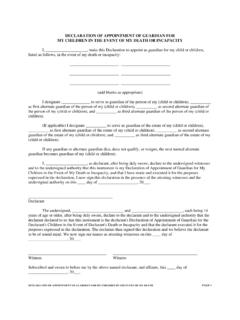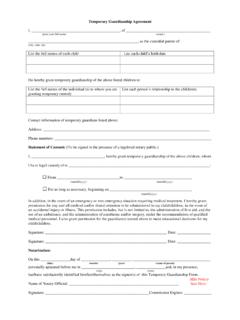Transcription of The Global Guardian of Public Health - WHO
1 The Global Guardian of Public Health >194 Member States >Headquarters in Geneva >6 regional offices>More than 150 country offices >More than 7000 staff> More than 700 institutions supporting WHO s work > Close partnerships with UN agencies, donors, foundations, academia, nongovernmental organizations and the private sectorWHO at a glance Region of the AmericasAfrican RegionEuropean RegionEastern Mediterranean RegionSouth-East Asia RegionWestern Pacific Region Regional office Headquarters Washington DCCopenhagenGenevaCairoNew DelhiManilaBrazzavilleThe boundaries and names shown and the designations used on this map do not imply the expression of any opinion whatsoever on the part of the World Health Organization concerning the legal status of any country, territory, city or area or of its authorities, or concerning the delimitation of its frontiers or boundaries.
2 Maps represent approximate border lines for which there may not yet be full agreement. WHO 2016. All rights | The Global Guardian of Public HealthOur goal at the World Health Organization (WHO) is to build a better, healthier future for people all over the world. Working through offices in more than 150 countries, WHO Secretariat staff work side by side with governments and other partners to ensure the highest attainable level of Health for all we strive to combat diseases infectious diseases like influenza and HIV and noncommunicable ones like cancer and heart disease. We help mothers and children survive and thrive so they can look forward to a healthy old age. We ensure the safety of the air people breathe, the food they eat, the water they drink and the medicines and vaccines they need. WHO keeps a close eye on Health trends, looking out for new threats and for new opportunities to improve Public Health .
3 We gather the world s top experts to examine critical Health issues, define the best solutions and deliver and implement the strongest recommendations. We help countries prepare for emergencies and act when they strike. Underpinning all we do, is a shared effort to build strong Health systems and achieve universal Health coverage. Because at WHO, we believe that no one should miss out on the opportunity to live a healthy pays for WHO?WHO is financed in part by dues paid by Member States. The amount each Member State must pay is calculated relative to the country s wealth and population. Additional financing comes from voluntary contributions which, in recent years, have accounted for more than three-quarters of the Organization s financing. Voluntary contributions come from Member States and partner organizations such as foundations and civil society.
4 Contributions from the private sector, usually in the form of in-kind donations, provide less than 1% of WHO s Global Guardian of Public HealthAssessed contributionsfrom Member StatesContributionsfrom private sectorVoluntary contributions from Member States and partners2 WHO | The Global Guardian of Public HealthOur priorities WHO has been at the forefront of improving Health around the world since its founding in 1948. Because the challenges confronting Public Health are continually changing, we must be constantly ready to evolve to meet new demands, and adapt the ways we go about our recent years, WHO has undergone a profound reform process. Our aim: an organization that pursues a higher degree of excellence, contributes to greater coherence in Global Health and, most important of all, achieves better Health has six leadership priorities.
5 Progress on these priorities will accelerate progress towards the new Sustainable Development Goal for Health : Ensure healthy lives and promote well-being for all at all universal Health coverage: enabling countries to sustain or expand access to all needed Health services and financial protection, and promoting universal Health works with governments to promote universal Health coverage to ensure that all people receive the Health services they need without suffering financial hardship when paying for them. We are responding to a groundswell of demand from countries seeking practical advice on how to tailor this to their own national circumstances. One key focus is on integrating Health services, and on meeting the growing desire for services that address the needs of individuals, as well as improving efficiency and value for Health -related development goals: addressing unfinished and future challenges relating to maternal and child Health ; combating HIV, malaria, TB, and completing the eradication of polio and a number of neglected tropical diseases.
6 WHO Member States are in the process of approving a series of new Global strategies and targets, based on the best evidence available. The Secretariat is working alongside governments and other partners to implement these strategies and meet the new the challenge of noncommunicable diseases and mental Health , violence and injuries and disabilities. WHO oversees a Global framework to track progress in preventing and controlling major noncommunicable diseases (NCDs). We strive to help countries reduce the Health impacts of the toll of tobacco use, harmful use of alcohol, sedentary lifestyles and unhealthy diets. We also work to improve access to services to control and treat | The Global Guardian of Public HealthEnsuring that all countries can detect and respond to acute Public Health threats under the International Health supports countries to prepare for and respond to all kinds of Health emergencies, including disease outbreaks and humanitarian crises.
7 When countries don t have the resources to deal effectively with an emergency on their own, WHO works with governments and partners to coordinate the international Health response including overseeing joint operational planning, developing evidence-based guidance, managing and supporting field operations and monitoring and communicating risks. And when the emergency is over, WHO helps countries to recover and rebuild their Health systems, and better respond to future Health emergencies. Increasing access to quality, safe, efficacious and affordable medical products (medicines, vaccines, diagnostics and other Health technologies).We promote rational procurement and prescribing of medicines, and work to improve access to safe, quality, affordable and efficacious medicines, including through the promotion of generics.
8 Our emphasis on innovation is matched by the measures we are taking to prevent the further development and spread of antimicrobial the social, economic and environmental determinants of Health as a means to promote Health outcomes and reduce Health inequalities within and between area includes our work on social Health protection, disaster preparedness, setting standards in relation to environmental hazards, climate change, energy and transportation policy, food safety, nutrition, access to clean water and sanitation and many others. We also seek to increase equity both in access to Health services and in improved Health outcomes. 4 WHO | The Global Guardian of Public HealthqrwteyWHO/Melissa WinklerWHO/David OrrCity of Sein joki, FinlandWHO/Philippe MetoisWHO Syria//Karam Al-Masri5 WHO | The Global Guardian of Public HealthStories from our six Regions VANUATUM oving towards an end to yaws Yaws is a contagious infection transmitted by skin contact that leads to disfigurement and disability, especially in children.
9 The disease was once widespread in tropical countries. Campaigns in the 1950s and 1960s, in which yaws was treated with one shot of penicillin, led to a 95% decline worldwide. Half a century later yaws made a comeback, including in Vanuatu. A 2011 WHO-supported survey revealed an urgent need for renewed action and that the Tafea province was especially hard hit. In 2013 Vanuatu s Ministry of Health , assisted by WHO, reached 96% of Tafea s population with needed treatment. FINlANDR educingchildhood obesityOverweight children are likely to remain overweight in adulthood, putting them at risk of heart disease, stroke, diabetes and other illnesses. In Finland, with one in five children overweight or obese, the government is working, with advice from WHO, to foster fitness and better diets through such actions as improving school playgrounds, providing advice on exercise at annual school physical exams and working with schools and day care centres to making lunches and snacks healthier.
10 PERUF eeding babies what s bestWHO promotes breastfeeding as the best source of nourishment for babies and one of the most effective ways to ensure child Health and survival. Yet worldwide, only 38% of babies are breastfed as their sole source of nourishment for 6 months, as WHO recommends. Peru has been a pathfinder. The proportion of infants exclusively breastfed increased from one in five in 1992 to more than half in 2000 thanks to a nationwide effort to implement an initiative sponsored by WHO and UNICEF. lIbERIAR ebuilding Health systems liberia, one of the countries hardest hit by the Ebola outbreak that began in 2014, already faced challenges in managing its Health system because of prior civil strife. Ebola left it in a critically weakened state. WHO staff are working with national authorities and their partners to develop integrated approaches to reactivating Health services with a specific focus on immunization, malaria, infant and child Health and maternal and reproductive Health .















